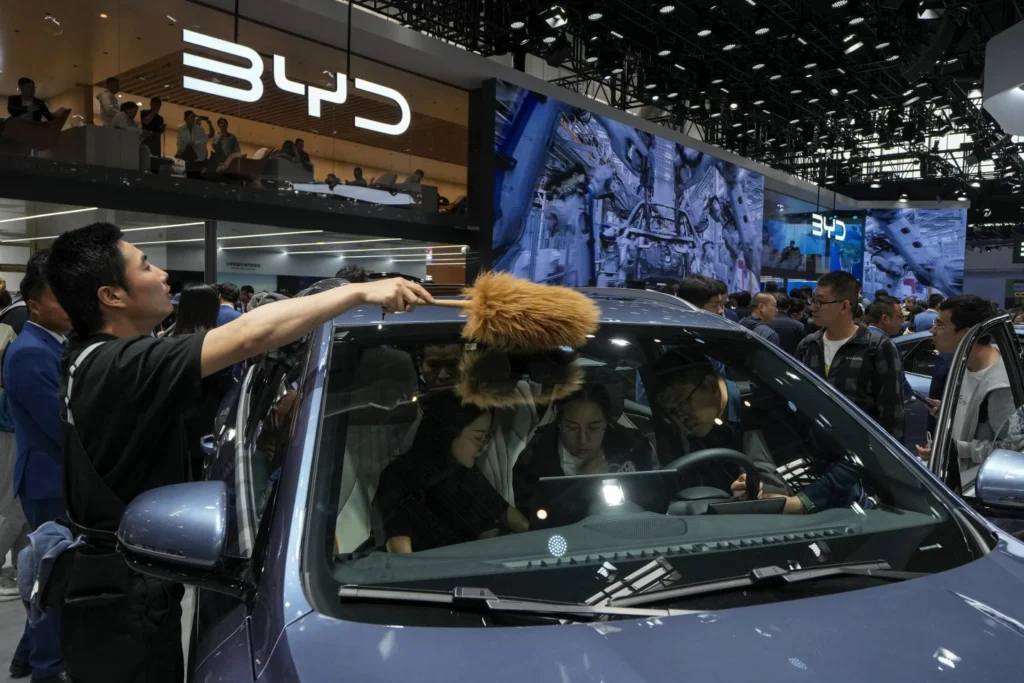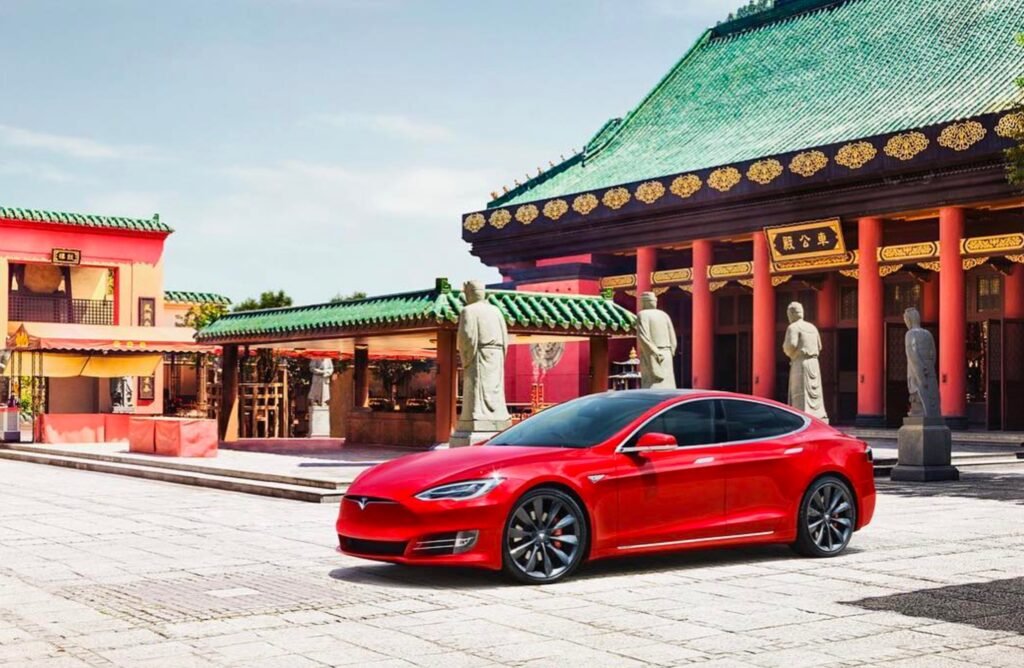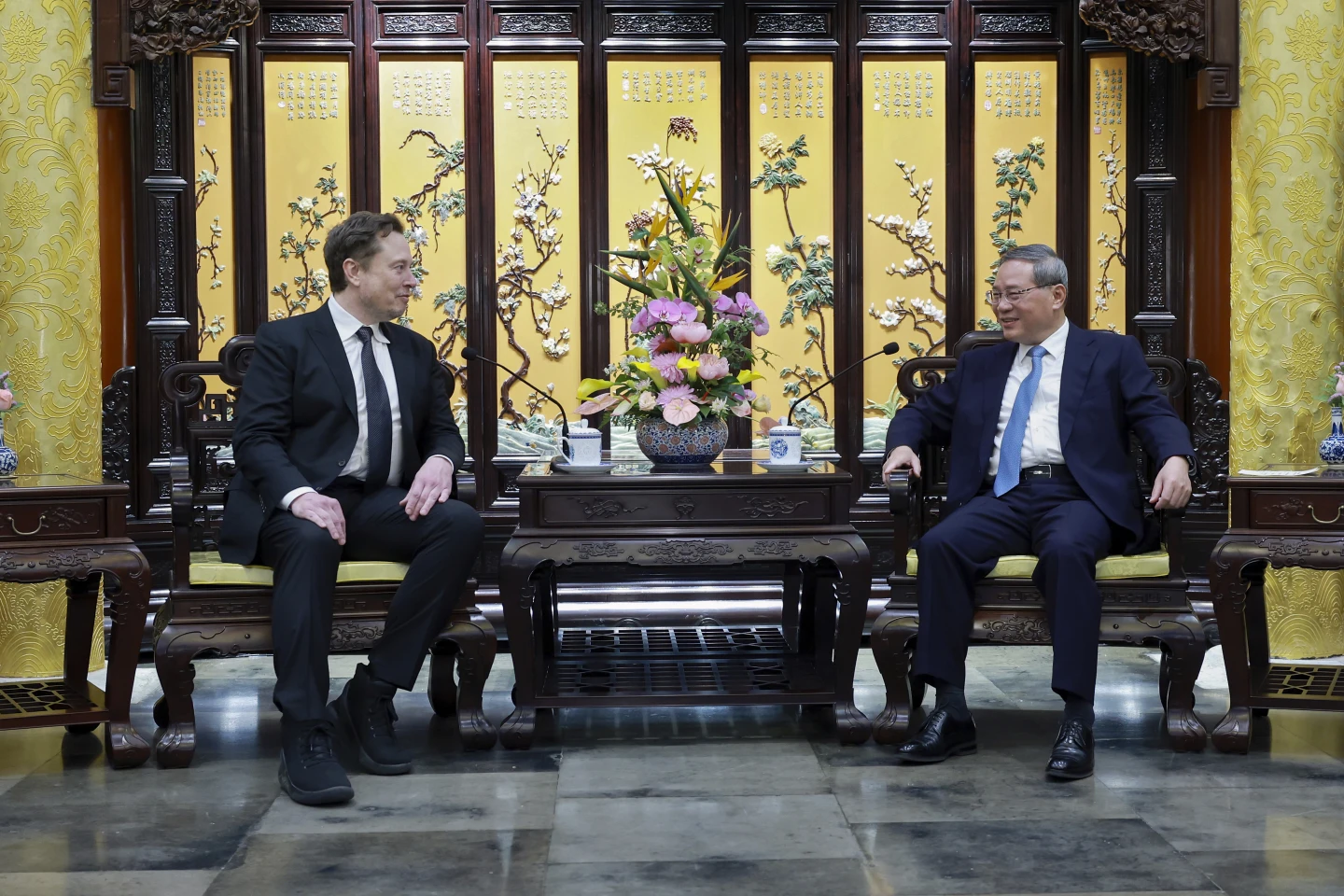China’s efforts to attract foreign investment and boost its economy have been evident in recent years. The nation has implemented various policies and initiatives to create a favorable environment for foreign businesses, and Elon Musk’s visit to China is a testament to the success of these efforts.
As the founder and CEO of Tesla, a leading electric vehicle manufacturer, Musk’s visit to China holds significant importance. China is the world’s largest automobile market, and the government’s push for electric vehicles aligns with Tesla’s mission to accelerate the world’s transition to sustainable energy. By establishing operations in China, Tesla has not only gained access to a massive consumer base but has also contributed to the country’s efforts to reduce carbon emissions and combat climate change.
During his visit, Musk’s meeting with Chinese Premier Li Qiang further solidified the positive relationship between Tesla and China. Premier Li’s welcoming remarks and his emphasis on “win-win” collaboration indicate the mutual benefits that both parties have derived from their partnership. Tesla’s presence in China has not only created job opportunities but has also stimulated economic growth in the region.
The Beijing Auto Show, which coincided with Musk’s visit, provided the perfect platform for Chinese carmakers to showcase their latest electric vehicle models. This event highlights China’s commitment to promoting the adoption of electric vehicles and its ambition to become a global leader in the industry. By attending the auto show, Musk demonstrated his support for China’s efforts and his recognition of the nation’s potential in driving the future of electric mobility.
Furthermore, Musk’s visit to China serves as a reminder of the interconnectedness of the global economy. In an increasingly interconnected world, collaboration between nations is crucial for addressing common challenges and achieving shared goals. China’s willingness to work with international companies like Tesla not only benefits its own economy but also contributes to global efforts to combat climate change and create a sustainable future.
Overall, Elon Musk’s visit to China amidst the Beijing Auto Show symbolizes the strong partnership between Tesla and China. It showcases the success of China’s efforts to attract foreign investment and foster a positive business environment. As Tesla continues to expand its operations in China and collaborate with local partners, the future looks promising for both the company and the nation.
China’s Growing Electric Vehicle Market

The Beijing Auto Show serves as a platform for Chinese automakers and startups to showcase their advancements in the electric vehicle (EV) sector. In recent years, China has witnessed a surge in the production and sales of electric cars, with some models directly competing with Tesla and offering lower prices. The Chinese government’s green energy subsidies have played a significant role in transforming the auto market, with EVs accounting for approximately a quarter of new car sales in the country last year, thereby impacting the demand for traditional gasoline-powered vehicles.
Recognizing the potential of the Chinese market, foreign automakers like Volkswagen and Nissan are also intensifying their efforts to develop new EV models in order to maintain or regain market share in China. As the world’s largest automobile market, China presents immense opportunities for companies in the electric vehicle industry.
Furthermore, the Chinese government’s commitment to reducing pollution and dependence on fossil fuels has been a driving force behind the growth of the electric vehicle market. In recent years, China has faced severe air pollution issues, particularly in major cities like Beijing and Shanghai. As a result, the government has implemented strict regulations and initiatives to promote the adoption of electric vehicles as a means of reducing emissions and improving air quality.
One such initiative is the New Energy Vehicle (NEV) credit system, which requires automakers to obtain a certain number of credits based on the production and sales of NEVs. Failure to meet the credit requirements can result in fines or restrictions on the production and sale of traditional gasoline-powered vehicles. This policy has incentivized automakers to invest heavily in the development and production of electric vehicles to ensure compliance with the credit system.
Moreover, the Chinese government has also implemented a comprehensive charging infrastructure plan to address one of the key concerns of potential EV buyers – range anxiety. The plan includes the installation of public charging stations in urban areas, as well as the development of fast-charging networks along highways. This infrastructure expansion has significantly improved the convenience and accessibility of charging for electric vehicle owners, further driving the demand for EVs in the country.
Additionally, the Chinese government’s support for domestic electric vehicle manufacturers has contributed to the growth of the industry. Through various policies and subsidies, Chinese automakers have been able to develop competitive electric vehicle models and gain a strong foothold in the market. This support has not only boosted the domestic industry but has also attracted foreign automakers to partner with or invest in Chinese companies to tap into the booming electric vehicle market.
Overall, the combination of government incentives, strict regulations, and infrastructure development has propelled China to become the world’s largest market for electric vehicles. With the continued focus on sustainability and the transition towards cleaner transportation, the growth of the electric vehicle market in China is expected to continue at a rapid pace, presenting both opportunities and challenges for automakers and industry stakeholders.
Tesla’s Presence in China

Tesla has established a major manufacturing base in Shanghai, catering to both domestic sales in China and exports to Europe and other regions. The company’s decision to reduce prices in China, aligning with similar reductions in the United States, demonstrates its commitment to remaining competitive in the Chinese market. The Model 3 was priced at 231,900 yuan ($32,700), while the Model Y was priced at 249,900 yuan ($35,200) after the price adjustment.
However, Tesla’s position in China may face challenges due to an ongoing investigation by the European Union into Chinese subsidies for the EV industry. This investigation could potentially lead to tariffs on electric vehicles manufactured in China, including Tesla cars. Nevertheless, Tesla’s presence in China has been significant, contributing to the growth of the EV market and establishing the company as a major player in the country’s automotive industry.
Despite potential challenges, Tesla’s manufacturing base in Shanghai has been instrumental in its success in China. The company’s decision to establish a local production facility has allowed it to avoid import tariffs and reduce costs, making its vehicles more affordable for Chinese consumers. In addition, Tesla’s investment in China has created job opportunities and stimulated economic growth in the region.
Moreover, Tesla’s commitment to sustainability aligns well with China’s push for greener transportation. The Chinese government has implemented policies to promote the adoption of electric vehicles, including generous subsidies and incentives for consumers. By offering high-quality electric vehicles, Tesla has played a crucial role in driving the transition to a cleaner transportation sector in China.
Furthermore, Tesla’s presence in China has not only benefited the company but also contributed to the development of the local supply chain. The establishment of the Gigafactory in Shanghai has attracted numerous suppliers and partners, creating a network of businesses that support the production of electric vehicles. This has not only boosted the local economy but also fostered technological advancements and innovation in the automotive industry.
While it remains uncertain whether Musk visited the Beijing Auto Show during his time in China, his visit itself signifies the importance of the Chinese market for Tesla and the broader electric vehicle industry. The meeting with Premier Li and the positive reception from Chinese authorities further solidify the relationship between Tesla and China, setting the stage for continued collaboration and growth in the future.


















